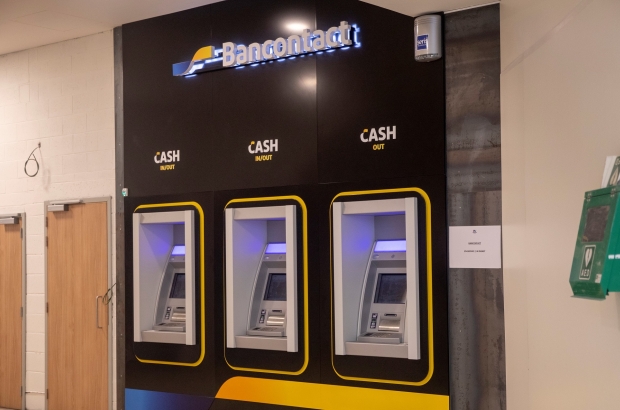- Daily & Weekly newsletters
- Buy & download The Bulletin
- Comment on our articles
'Access to cash is a concern': Solutions proposed for lack of ATMs in Belgium
A lack of accessible cash machines in Belgium – as more and more are shut down in favour of online banking options – is causing long queues at what ones remain.
Federal minister Pierre-Yves Dermagne (PS) is asking the banking sector to better spread out cash machines in cities, especially in Brussels where elderly people have complained about the distances they must travel to obtain cash.
An agreement is in the works, Bruzz reports, that Dermagne says “stops the bleeding”.
“I am proud to have been able to make the banks realise this, so that the sector is now obliged to assume its social responsibility – the same sector that seemed to have lost sight of this until recently,” the minister commented.
“In the Marolles neighbourhood, it really is a desert,” Michel Deschuytere, president of the Marolles merchants' association, said.
“Over a 10-year period, six ATMs have disappeared. Only the one on Place du Jeu de Balle and the one in Porte de Hal metro station remain.”
ATMs at other locations, including Sablon, have disappeared. Bank employees refer customers who ask to the next nearest ones, which are often several bus stops away.
The ATMs that do remain often have long lines of customers waiting to access them, and regular breakdowns.
Under the name Batopin (Belgian ATM Optimisation Initiative), four major Belgian banks have been installing ‘unbranded’ ATMs recently. But the number of new ATMs does not outweigh the number that disappeared since the campaign started.
Throughout the City of Brussels, the number of ATMs has even declined since the arrival of Batopin in 2021. There were still 135 ATMs in 2021, but only 108 after their merger.
Batopin's competitors, a number of smaller banks, also signed a cooperation agreement but it is not yet clear whether they have actually added any ATMs yet.
“If [the decline] continues at this rate, it won't last,” Deschuytere said, pointing out that local businesses need a place to deposit cash.
The federal government reached an agreement with the Belgian financial sector federation (Febelfin) and Batopin last week based on the idea that there should be an ATM within 2km in urban areas and within 5km in rural areas.
ATMs will be placed in 207 additional locations in Belgium by 2025 and by 2027, there will be around 4,000 ATMs in Belgium, more evenly spread than today.
Additionally, 80 ATMs will be added in what are considered to be strategic locations, with the aim of improving access to cash for city residents.
State secretary for economic transition Barbara Trachte (Ecolo) earlier revealed that the ATM network rollout envisaged by Batopin did not meet the needs of merchants in Brussels, which is partly why the federal government is stepping in.
Major banks have been gradually dismantling their ATM network for years, as it is much more costly for them than the electronic transactions that have exploded in parallel.
But the need to maintain a distribution network close enough to the most vulnerable people, as well as deposit points for retailers and the self-employed, has made ATM accessibility a sensitive political issue.
Another point of the agreement reached between ministers and banks is that in urban areas, ATMs that are currently scheduled to disappear will either be retained or replaced.
In addition, free transactions will no longer be limited to the ATMs of the consumer's own banking institution. Consumers will be able to make 24 free withdrawals per year from ATMs, regardless of the location of the ATM.
The agreement also specifies that at least one out of two Batopin ATMs will have a deposit function, “which is particularly important for traders and the liberal professions,” according to Alexia Bertrand (Open Vld).
But critics say the agreement does not fully solve the issue.
“The government and the banking sector are ignoring the right of access to cash,” Financité, Test Achats and Okra said in a joint statement, calling the agreement “insufficient”.
Those organisations are calling for at least 5,900 ATMs in Belgium – the number that the country had at the end of 2021.
They are also demanding that at least 95% of the population have access to a bank offering the basic range (withdrawal, deposit etc) within 2.5km by road.
“The federal authorities and Febelfin have reached a largely insufficient agreement on the issue of ATMs. The needs and rights of consumers are thus ignored,” their statement says.
The three organisations launched a petition against the disappearance of ATMs back in March that has since gathered more than 17,500 signatures, proving that “access to cash is a concern for many Belgians”.



















